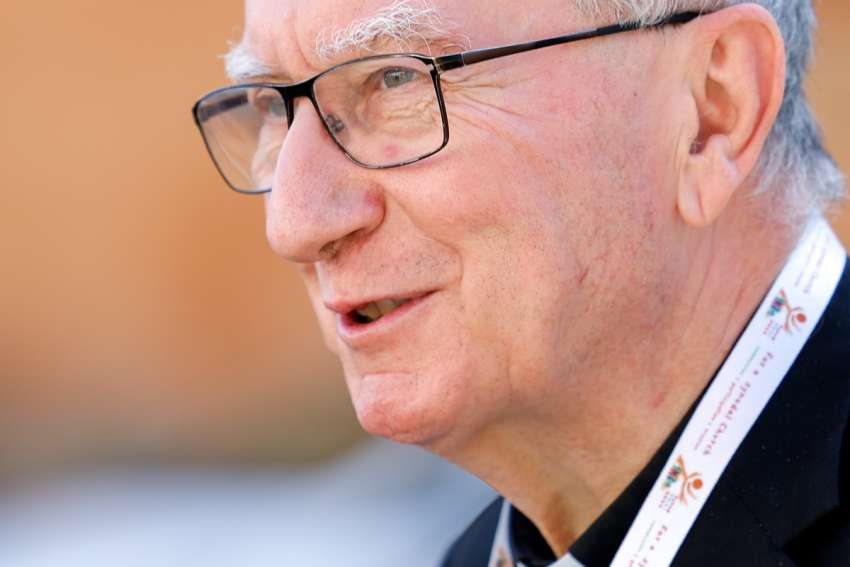Ongoing discernment, "which is not simply intuition but the fruit of continual prayer in the Spirit," will show the church "how to continue and what to make institutional," the cardinal said April 24 at a book presentation. But "precisely because it is the action of the Spirit there can be no reversal."
The Italian book, "Five Questions that Agitate the Church," was written by Ignazio Ingrao, the chief Vatican correspondent for TG1, Italy's main news program.
The fifth question he posed was: What will happen to the reforms undertaken by Pope Francis?
The other four questions in the book are: To whom does the church speak today? How can the church respond to the decline in religious practice? Is openness to the laity and women real or just a facade? How can the church speak to modern people about gender, the beginning of life and end of life?
Speaking at Italy's Ministry of Culture, Cardinal Parolin presented the book's questions and content without going into detail about how he would respond to the questions or even whether he believed those were the key questions facing the church.
Focusing on the book's last question, the cardinal quoted James 5:7: "Be patient, therefore, brothers, until the coming of the Lord. See how the farmer waits for the precious fruit of the earth, being patient with it until it receives the early and the late rains."
"We know that the church is 'semper reformanda' (always reforming) in the sense that it always must be brought back to its proper form," he said, because -- as the Second Vatican Council taught -- while the church is always holy, it always needs purification because it embraces sinners.
Cardinal Parolin said that the book's title, with its reference to agitation, invites readers to consider the questions "with the awareness and prudence with which we approach situations that are turbulent or frightening," but also with trust in the Lord like the disciples had when they were in the boat tossed on the waves of the Sea of Galilee.
Differences and difficulties "can be read not only as agitations or dangers," the cardinal said, "but also as opportunities. They are part of God's wise pedagogy, how he educates us, helps us mature and make progress. They help us understand that we disciples also have a continual need to be corrected because we can have an illusion that our ministry -- and the church itself -- is safe from any inadequacy."
"On this point," he said, "Pope Francis has made and continues to make very relevant reflections. Yet we -- unlike the disciples on the boat, who were still immersed in the pre-Easter phase of the story of Jesus -- we know that the Holy Spirit, that is, the breath of God given by Jesus on the cross and then on the day of Pentecost, makes the church able to resist the climate of cultural upheaval and able to resist the sins of the men and women who are its members."
"Despite so many difficulties we experience, so many tensions that are part of everyday life, we know that we have fixed points, which will not fail," Cardinal Parolin said.
The book, the cardinal said, suggests there exists a kind of "theology of the desk" that relies only on "cold logic" and ignores real-life pastoral situations.
The author cites as a reaction against that absolutism the Dicastery for the Doctrine of the Faith's declaration "Fiducia Supplicans," which was published in December and opened the possibility for priests and other ministers to give non-liturgical blessings to gay and other couples not married in the church.
Cardinal Parolin told the audience that even Cardinal Víctor Manuel Fernández, prefect of the doctrinal dicastery, recognizes "the text is open to being made more precise, enriched and improved, and, perhaps, to being enlightened better by the teaching of Pope Francis."


